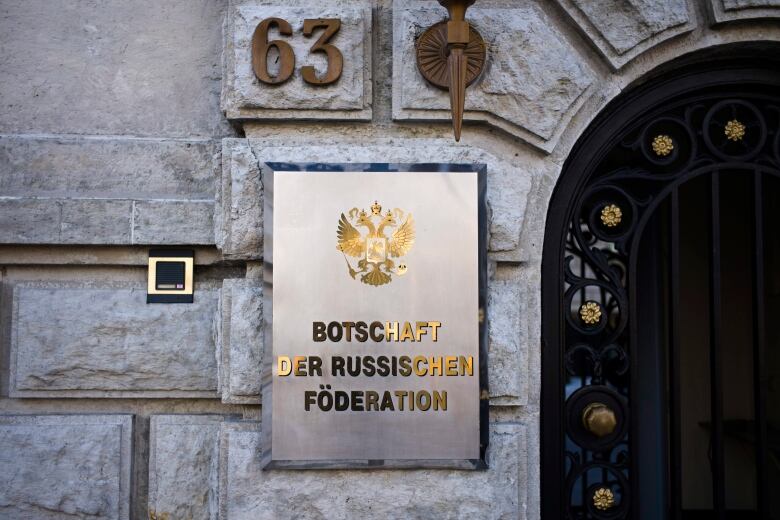NATO expels 7 Russian officials, praises response to Salisbury poisoning
Ireland, Australia follow over 20 other nations in announcing banishments
NATO chief Jens Stoltenberg says the military alliance will expel seven staffers from the Russian mission due to the nerve-agent poisoning of a former Russian spy in Britain.
He said NATO will also deny the pending accreditation request of three other workers at the Russian mission.
Russia, which is not a member of NATO, will still have a diplomatic mission of 20 people at alliance headquarters in Brussels, and that will allow Russia to keep essential contacts with NATO members, Stoltenberg said.
After more than 20 nations, including Canada, expelled Russian diplomats on Monday in response to the nerve agent attack on a former Russian military intelligence officer and his daughter, Ireland and Australia followed suit with similar measures on Tuesday.
On Tuesday Australian Prime Minister Malcolm Turnbull said his country was expelling two Russian diplomats whom he described as undeclared intelligence officers. They have been given seven days to leave Australia.

Ireland also announced it was ordering one Russian diplomat to leave. Foreign Minister Simon Coveney called the nerve-agent attack on Skripal and his daughter a "shocking and abhorrent" use of chemical weapons.
Britain had expelled 23 Russian officials before the co-ordinated international response.
Some 140 Russian officials have been censured overall, according to Stoltenberg, representing 25 nations.
No Russian retaliation yet
The Skripals remain hospitalized in critical condition after they were found unconscious on March 4 in the English city of Salisbury, where the former spy lived. Britain says they were poisoned with a Soviet-made military-grade nerve agent known as Novichok.
Officials in Moscow, who deny responsibility for the attack, condemned the expulsions again on Tuesday but have not yet announced steps of retaliation.
Speaking at a conference in Uzbekistan, Russian Foreign Minister Sergey Lavrov told reporters that a reaction will follow, because Russia "will not tolerate such rude behaviour."
U.S. President Donald Trump has yet to publicly comment, but according to the White House, he spoke with French President Emmanuel Macron and German Chancellor Angela Merkel in separate calls Tuesday. The leaders "expressed support" for the co-ordinated move and "praised" the announcement by other Western allies who have followed suit.
Earlier on Tuesday, Deputy Foreign Minister Sergei Ryabkov said Moscow was working on a "tough response" to the expulsions.
Top EU lawmaker Guy Verhofstadt wants the European Union to sharpen sanctions on the Kremlin if necessary but also insists on a broader strategy to reach out to Russians in general.
The leader of the liberal ALDE group in Belgium backed the expulsions of diplomatic staff by EU nations but said "that's not enough."
In an interview with The Associated Press, he said that economic co-operation and visa liberalization were just as important as a clampdown on President Vladimir Putin and his closest allies.
He compared it to the Helsinki detente process during the Cold War when channels were being kept open despite the fact that both sides had hundreds of nuclear warheads pointed at one another.
With files from CBC News














_(720p).jpg)


 OFFICIAL HD MUSIC VIDEO.jpg)
.jpg)



























































































